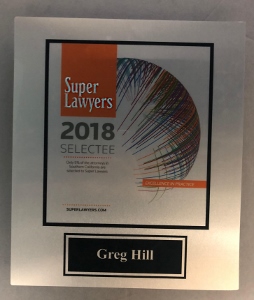Whenever a police officer makes a traffic stop, there is an issue of whether police can search the car. Sometimes, probable cause to search is relatively obvious, especially if there is, for example, thick marijuana smoke (before Prop 64 was passed) billowing out of the car window into the officer’s face as the driver rolls down the window to speak to the officer.
The Point of This Article: A search of a vehicle by a drug detection dog is proper even if the dog’s signal to police that there are drugs in the car is mistaken. In the case here, the search found no drugs, but materials to produce meth and the search was upheld because the driver was nervous and this provided probable cause to search the car. We think this ruling is seriously flawed.
Other times, no probable cause appears because the driver seems sober, is dressed like a professional, is respectful and does not seem overly nervous in the presence of a police officer.
On June 24, 2006, Officer William Wheatley of the Liberty County, Florida, Sheriff’s Office pulled over Clayton Harris because his truck had an expired license plate. Wheatley had Aldo, a German shepherd trained to detect certain narcotics (methamphetamine, ecstasy, heroin, marijuana and cocaine), with him.
Wheatley described Harris as unable to sit still, very nervous, shaking and breathing rapidly. Wheatley also noticed an open beer can in Harris’ truck cup holder.
Wheatley asked Harris for consent to search the car. Harris refused. Wheatley then brought Aldo out of the police car and walked him around the car for a “free air sniff.”
Aldo allegedly then demonstrated those behaviors he was taught to show when he smelled any of the drugs he was trained to detect. Aldo sat by Harris’ car door, indicating he believed the smell came from inside the truck. Wheatley concluded he then had probable cause to search the car and proceed to do so.
No drugs were found.
However, Wheatley did find 200 loose pseudoephedrine pills, 8,000 matches, a bottle of hydrochloric acid, two bottles of antifreeze and a coffee filter filled with iodine crystals. All such items are common ingredients to produce methamphetamine.
Wheatley then arrested Harris and administered proper
Miranda warnings. Harris then confessed that he routinely cooked methamphetamine and used it every few days.
The State of Florida then charged Harris with possessing pseudoephedrine for use in manufacturing methamphetamine.
Harris moved to suppress the evidence seized, meaning he asked the judge to throw out the evidence seized by Officer Wheatley. Harris argued that Aldo had not given a Wheatley probable cause for a search. After all, Aldo was wrong. No drugs were found. Harris also argued that Aldo’s certification for narcotics detection had expired a year before Wheatley pulled over Harris. Harris' lawyer also criticized police records because police kept no records of alerts that did not result in an arrest.

The trial court denied Harris’ suppression motion. Harris then entered a no-contest plea and appealed the ruling on the motion to suppress all the way to the Florida Supreme Court.
The Florida Supreme Court reversed, holding that Wheatley lacked probable cause to search Harris’ truck. The State of Florida then appealed to the U.S. Supreme Court. The ruling from the U.S. Supreme Court then took on new significance, as it was going to declare law that would become applicable to all states, including California (which is why this article is being written!).
The Supreme Court then reversed the Florida Supreme Court’s ruling.
Florida v. Harris (2013 DJDAR 2229).
The U.S. Supreme Court reasoned that “a police officer has probable cause to conduct a search when the facts available to him would warrant a person of reasonable prudence to act.” In the case of Aldo, although his training and testing records were not perfect, Aldo’s reliability was otherwise good. Therefore, there was a common-sense “fair probability” that drugs were indeed inside the truck and thus, probable cause to search did exist. The Supreme Court refused to adopt rigid rules, such as standard concerning a drug-detecting dog’s certification currency, and instead looked to the “totality of the circumstances,” which in this case included Harris’ fidgeting, heavy breathing and nervous demeanor.
This is a bad decision for defendants, as one might appreciate. It permits a judge to overlook shortcomings in the prosecution evidence and give great weight to facts that may have ambiguous explanations. For example, in Harris’ case, he was pulled over in late June in Florida. It would be natural that he would be sweating, but not necessarily from anxiety. It is simply hot in Florida in late June. It would be far better if rigid, bright-line tests were applied in cases such as these involving important liberty interests and fundamental Fourth Amendment rights.
The citation for the Court of Appeals ruling discussed above is Florida v. Clayton Harris (2013) 568 U.S. 237, 133 S.Ct. 1050; 185 L. Ed. 2d 61.
For more information about drug-sniffing dogs and the Fourth Amendment in general, click on the following articles:
- Police Sniff Dog Found Reliable to Court Despite Signaling the Presence of Narcotics That Did Not Exist
- U.S. Supreme Court Rules That Warrantless Use of Police Dog on Front Porch to Signal Drugs Violates the Fourth Amendment
- Fourth Amendment Violated When Officers Search House After House Guest Lets DEA Agents into House
Contact Greg Hill & Associates
